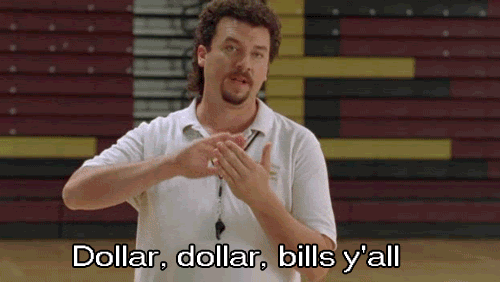Here’s a conversation that actually happened…
Me: Is this song by that Bulldog guy?
Husband: Uh… do you mean Pitbull?
Me:
Him:
Me: Yeah, that makes more sense.
Now, the crazy thing about this isn’t my lack of pop culture knowledge. (Something that’s been true of me at every age.) It’s that in the beginning of the song, someone — IDK who, of course — literally announces Pitbull by name.
And yet I was still like:

So, if I, an elder millennial, can’t remember the name of a really, really famous rapper/singer… even when someone just announced his name 3 minutes earlier…
…you can imagine the likelihood that your new subscribers will remember your name.
Probably won’t happen.
And this is such an important thing for anyone in marketing and sales to know about people.
The reality is, most people have too much on their minds. So if they subscribe to your email list, and you let days or weeks pass, the vast majority won’t remember your name when it shows up in their inbox. They won’t remember why they subscribed. Or worse, they won’t even remember subscribing at all, and that’s when lots of people hit the “spam” button.
So when people hesitate to email every day in their welcome sequence — as I advise in my First 7 Days Formula — I push them to reconsider.
It’s important to show up right away and often, especially in the beginning. And when you do, along with providing real value, people won’t just remember you. They’ll actually look forward to seeing your name in their inbox. They’ll be far more likely to open your emails, and far more likely to click and buy.
So if you’re not showing up for them like this right now, it’s time to look at your welcome sequence(s) again with fresh eyes.
And if you need help, you can start with my free First 7 Days Checklist.
Ready? Pues…

(In this context, “dale” — no accent, that’s a mistake in the gif — means “let’s go” or “hit it.”)
Note: I still probably wouldn’t recognize most Pitbull songs, though now I’m at least aware that his name is not Bulldog. It’s a start.
The post I Know No One (and How to Use This Info in Marketing Campaigns) appeared first on Copy Consulting in Health and Personal Development.










